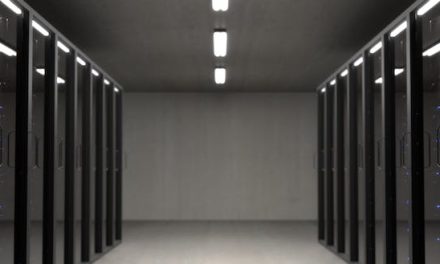Table of Contents
Democratizing Education Globally: The Rise of MOOCs.
Introduction
The Rise of MOOCs: Democratizing Education Globally
Massive Open Online Courses (MOOCs) have emerged as a significant force in the field of education, revolutionizing the way people access and engage with learning materials. MOOCs are online courses that are open to anyone, anywhere, and typically offered by prestigious universities and institutions. This innovative approach to education has gained immense popularity due to its ability to democratize education globally, making high-quality learning accessible to a wide range of individuals regardless of their geographical location, financial status, or educational background. The rise of MOOCs has opened up new opportunities for lifelong learning, skill development, and knowledge acquisition, transforming the landscape of education on a global scale.
The Benefits of MOOCs in Expanding Access to Education

The Benefits of MOOCs in Expanding Access to Education
In recent years, Massive Open Online Courses (MOOCs) have gained significant popularity as a means of expanding access to education globally. MOOCs are online courses that are open to anyone with an internet connection, regardless of their location or educational background. This democratization of education has the potential to revolutionize the way people learn and acquire new skills.
One of the key benefits of MOOCs is their ability to reach a wide audience. Traditional education systems often have limited capacity, with physical classrooms and limited resources. MOOCs, on the other hand, can accommodate an unlimited number of students. This means that individuals who may have been excluded from traditional education due to factors such as geographical location or financial constraints now have the opportunity to learn and gain knowledge.
Furthermore, MOOCs offer flexibility in terms of time and pace of learning. Unlike traditional classroom-based courses, MOOCs allow students to learn at their own convenience. This is particularly beneficial for individuals who are working or have other commitments that make attending regular classes difficult. With MOOCs, students can access course materials and lectures at any time, allowing them to fit their studies around their existing schedule.
Another advantage of MOOCs is the wide range of subjects and courses available. Traditional education systems often have limited course offerings, especially in remote or underprivileged areas. MOOCs, on the other hand, cover a vast array of topics, ranging from computer science to literature to business management. This means that individuals can pursue their interests and passions, regardless of whether these subjects are offered in their local educational institutions.
Moreover, MOOCs provide opportunities for lifelong learning. In today’s rapidly changing world, it is crucial for individuals to continuously update their skills and knowledge. MOOCs offer a platform for individuals to acquire new skills or enhance existing ones, without the need to enroll in a full-time degree program. This is particularly beneficial for professionals who are looking to upskill or individuals who are seeking to change careers.
Additionally, MOOCs foster a sense of community and collaboration among learners. Many MOOCs incorporate discussion forums and interactive elements that allow students to connect with each other and with instructors. This creates a supportive learning environment where students can share ideas, ask questions, and receive feedback. The global nature of MOOCs also means that students can interact with individuals from different cultures and backgrounds, fostering a diverse and inclusive learning experience.
Furthermore, MOOCs often provide certifications or credentials upon completion of a course. While these credentials may not hold the same weight as a traditional degree, they can still be valuable in demonstrating knowledge and skills to potential employers. This is particularly beneficial for individuals who may not have access to traditional educational institutions or who are looking to enhance their employability.
In conclusion, MOOCs have the potential to democratize education globally by expanding access to learning opportunities. The benefits of MOOCs in terms of reaching a wide audience, offering flexibility, providing a wide range of subjects, fostering lifelong learning, creating a sense of community, and offering certifications are undeniable. As technology continues to advance, it is likely that MOOCs will play an increasingly important role in shaping the future of education.
How MOOCs are Revolutionizing Traditional Learning Methods
The Rise of MOOCs: Democratizing Education Globally
How MOOCs are Revolutionizing Traditional Learning Methods
In recent years, Massive Open Online Courses (MOOCs) have gained significant popularity and are revolutionizing traditional learning methods. MOOCs are online courses that are open to anyone, anywhere, and are often offered by prestigious universities and institutions. This article explores how MOOCs are changing the landscape of education and making it more accessible to people around the world.
One of the key ways in which MOOCs are revolutionizing traditional learning methods is through their accessibility. Unlike traditional brick-and-mortar institutions, MOOCs can be accessed by anyone with an internet connection. This means that individuals who may not have had the opportunity to attend a physical university can now access high-quality education from the comfort of their own homes. This has the potential to level the playing field and democratize education globally.
Furthermore, MOOCs offer flexibility in terms of scheduling. Traditional learning methods often require students to adhere to a fixed schedule, attending classes at specific times. However, with MOOCs, learners can access course materials and lectures at their own convenience. This flexibility allows individuals to balance their education with other commitments, such as work or family responsibilities. It also means that learners can progress at their own pace, ensuring a more personalized learning experience.
Another way in which MOOCs are revolutionizing traditional learning methods is through their cost-effectiveness. Traditional education can be prohibitively expensive, with tuition fees, accommodation costs, and other expenses. MOOCs, on the other hand, are often offered free of charge or at a significantly reduced cost. This makes education more accessible to individuals who may not have the financial means to pursue a traditional degree. Additionally, MOOCs eliminate the need for commuting or relocating, further reducing costs associated with education.
Moreover, MOOCs offer a wide range of courses and subjects, catering to diverse interests and needs. Traditional learning methods often have limited course offerings, and individuals may have to compromise on their desired field of study. MOOCs, however, provide a vast array of courses, ranging from computer science to literature to business. This allows learners to explore their passions and interests, regardless of their geographical location or financial situation.
Furthermore, MOOCs promote lifelong learning and continuous professional development. In today’s rapidly changing world, it is crucial for individuals to stay updated with the latest knowledge and skills. MOOCs offer the opportunity to acquire new skills or enhance existing ones, ensuring that individuals remain competitive in the job market. This flexibility and accessibility to lifelong learning are essential in a world where technology and industries are constantly evolving.
In conclusion, MOOCs are revolutionizing traditional learning methods by democratizing education globally. Their accessibility, flexibility, cost-effectiveness, and wide range of courses are transforming the way people learn and acquire knowledge. MOOCs have the potential to bridge the educational gap and provide opportunities for individuals who may have been excluded from traditional education. As technology continues to advance, it is likely that MOOCs will play an even more significant role in shaping the future of education.
The Role of MOOCs in Bridging the Skills Gap
The Role of MOOCs in Bridging the Skills Gap
In today’s rapidly changing job market, the demand for highly skilled workers is on the rise. However, there is a significant gap between the skills employers need and the skills that job seekers possess. This skills gap has become a major concern for both individuals and organizations, as it hinders economic growth and limits career opportunities. Fortunately, Massive Open Online Courses (MOOCs) have emerged as a powerful tool in bridging this gap and democratizing education globally.
MOOCs are online courses that are open to anyone, anywhere, and typically offered by prestigious universities and institutions. They provide access to high-quality education at a fraction of the cost of traditional education. This accessibility has made MOOCs particularly valuable in addressing the skills gap, as they allow individuals to acquire new skills and knowledge without the barriers of time, location, or financial constraints.
One of the key advantages of MOOCs is their flexibility. Learners can access course materials and lectures at their own pace, allowing them to fit their studies around their existing commitments. This flexibility is especially beneficial for individuals who are already employed or have other responsibilities, as it enables them to upskill or reskill without having to sacrifice their current job or personal life.
Moreover, MOOCs offer a wide range of courses across various disciplines, ensuring that learners can find the specific skills they need to bridge the gap in their desired field. Whether it’s coding, data analysis, project management, or marketing, MOOCs provide a diverse array of courses that cater to the demands of the job market. This versatility allows individuals to tailor their learning experience to their specific career goals, making them more competitive in the job market.
Another significant advantage of MOOCs is their ability to provide learners with practical, hands-on experience. Many MOOCs incorporate interactive assignments, quizzes, and projects that allow learners to apply their knowledge in real-world scenarios. This practical approach not only enhances the learning experience but also equips learners with the skills and confidence they need to succeed in their chosen field.
Furthermore, MOOCs foster a sense of community and collaboration among learners. Through discussion forums, online communities, and peer-to-peer feedback, learners can engage with their peers from around the world, share ideas, and learn from each other’s experiences. This collaborative environment not only enhances the learning process but also provides learners with a global perspective, exposing them to different cultures, perspectives, and ideas.
The impact of MOOCs in bridging the skills gap is not limited to individuals alone. Organizations are also recognizing the value of MOOCs in upskilling their workforce. Many companies are partnering with MOOC providers to offer their employees access to relevant courses and training programs. This not only helps organizations address their skills gaps but also demonstrates their commitment to employee development and retention.
In conclusion, MOOCs have emerged as a powerful tool in bridging the skills gap and democratizing education globally. Their accessibility, flexibility, and practical approach make them an ideal solution for individuals seeking to acquire new skills or enhance their existing ones. Moreover, the collaborative nature of MOOCs fosters a sense of community and provides learners with a global perspective. As the demand for highly skilled workers continues to grow, MOOCs will play an increasingly vital role in equipping individuals with the skills they need to succeed in the job market.
The Future of MOOCs: Challenges and Opportunities
The Future of MOOCs: Challenges and Opportunities
As Massive Open Online Courses (MOOCs) continue to gain popularity and recognition, it is important to consider the challenges and opportunities that lie ahead for this innovative form of education. While MOOCs have the potential to democratize education globally, there are several obstacles that need to be addressed in order to fully realize their potential.
One of the main challenges facing MOOCs is the issue of completion rates. Despite the fact that MOOCs are accessible to anyone with an internet connection, the dropout rate remains high. Research has shown that only a small percentage of students who enroll in MOOCs actually complete the course. This raises questions about the effectiveness of MOOCs as a form of education and the need for additional support and guidance for learners.
Another challenge is the lack of accreditation and recognition for MOOCs. While many MOOC providers offer certificates of completion, these credentials are often not recognized by traditional educational institutions or employers. This limits the value of MOOCs in terms of career advancement and further education. In order to overcome this challenge, there is a need for standardization and recognition of MOOCs by educational institutions and employers.
Additionally, the scalability of MOOCs presents both challenges and opportunities. On one hand, the ability to reach a large number of learners globally is a significant advantage of MOOCs. However, this also means that MOOC providers need to ensure that the courses are designed in a way that can accommodate a diverse range of learners. This includes providing support for learners with different learning styles and abilities, as well as addressing language and cultural barriers.
Furthermore, the issue of quality control is a concern for MOOCs. With the increasing number of MOOC providers and courses available, it becomes difficult for learners to determine the quality and credibility of the courses they are enrolling in. This highlights the need for a system of quality assurance and evaluation for MOOCs, similar to the accreditation process for traditional educational institutions.
Despite these challenges, there are also numerous opportunities for the future of MOOCs. One of the main opportunities is the potential for personalized and adaptive learning. With the use of data analytics and artificial intelligence, MOOCs have the ability to tailor the learning experience to individual learners, providing them with personalized feedback and recommendations. This can greatly enhance the effectiveness and engagement of learners.
Another opportunity is the potential for lifelong learning and continuous professional development. MOOCs can provide individuals with the opportunity to acquire new skills and knowledge throughout their lives, allowing them to adapt to the changing demands of the job market. This can help bridge the gap between education and employment, and empower individuals to take control of their own learning and career development.
In conclusion, while MOOCs face several challenges, such as low completion rates, lack of accreditation, scalability issues, and quality control concerns, there are also numerous opportunities for their future. By addressing these challenges and leveraging the opportunities, MOOCs have the potential to democratize education globally and revolutionize the way we learn. It is crucial for educators, policymakers, and stakeholders to work together to ensure that MOOCs are accessible, effective, and recognized as a valuable form of education.
Q&A
1. What are MOOCs?
MOOCs are Massive Open Online Courses, which are online courses that are open to anyone with internet access and can accommodate a large number of participants.
2. How do MOOCs democratize education?
MOOCs democratize education by providing free or low-cost access to high-quality educational content and resources to learners worldwide, regardless of their geographical location or financial status.
3. What are the benefits of MOOCs?
Some benefits of MOOCs include increased accessibility to education, flexibility in learning schedules, the ability to learn at one’s own pace, and the opportunity to learn from renowned professors and institutions.
4. What are the challenges of MOOCs?
Challenges of MOOCs include low completion rates, limited interaction and personalized feedback, the need for self-discipline and motivation, and the potential for unequal access to technology and internet connectivity.
Conclusion
In conclusion, the rise of MOOCs (Massive Open Online Courses) has played a significant role in democratizing education globally. These online platforms have provided access to high-quality educational resources and courses to individuals from all walks of life, regardless of their geographical location or socioeconomic background. MOOCs have broken down barriers to education by offering flexible learning options, eliminating the need for physical classrooms, and providing opportunities for lifelong learning. As a result, more people around the world now have the chance to acquire knowledge and skills, contributing to the democratization of education on a global scale.




